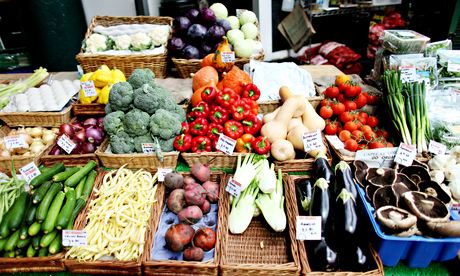
Whose responsibility is it ensure consumers are eating a healthy, balanced diet in a way that advances health, development and sustainability worldwide?
As Tesco updates on its scale for good work and Consumers International launch new recommendations on world food sustainability, we're discussing the best methods to encourage healthy and sustainable diets across the globe.
The United Nations Food and Agriculture Organisation (FAO) defines sustainable diets as: "Those diets with low environmental impacts which contribute to food and nutrition security and to healthy life for present and future generations. Sustainable diets are economically fair and affordable; nutritionally adequate, safe and healthy; while optimising natural and human resources."
Unhealthy diets contribute to a myriad of health-related and environmental concerns. According to the CDC, 75% of healthcare spending goes on treating preventable diet-related diseases, and research shows that unsustainable agriculture worldwide is responsible for 24% of global greenhouse gas emissions, contributing to climate change.
At the same time, the UN predicts that the global population will grow from 7 billion to 9.3 billion by 2050. So, with at least 3 billion more people likely to enter the global middle class in the next generation - causing greater environmental demand on resource-intensive foods – how can we help to change consumer behaviour around healthy and sustainable diets?
There is also a consideration of policy: what are the best methods to implement sustainable diets from a policy level and how do we raise public awareness of the issues?
Join us on Thursday 22 May from 1pm-2pm BST to discuss these questions and more.
The live chat is not video or audio-enabled but will take place in the comments section (below). Get in touch via globaldevpros@theguardian.com or @GuardianGDP on Twitter to recommend someone for our expert panel. Follow the discussion using the hashtag #globaldevlive.
Panel
Janet Ranganathan, vice president, science and research, World Resources Institute, Washington.
Janet is vice president of science and research at the WRI and co-author of the 'World Resources Report, Creating a Sustainable Food Future'.
Tim Smith, group quality director, Tesco, London, UK.
Tim manages Tesco's global safety, quality and compliance teams. Before this, Tim was chief executive of the UK Food Standards Agency and Arla Foods.
Duncan Williamson, food policy expert, WWF, London, UK. @DuncWilliamson
Duncan has worked for over 5 years on sustainable diets. He works on sustainable food security in a post-2015 world and established Livewell.
Mark Winne, co-founder of food and agriculture policy groups, executive director, Hartford Food Systems, Santa Fe, New Mexico.
Mark is senior advisor at Johns Hopkins Center and author of 'Closing the Food Gap: Resetting the Table in the Land of Plenty'.
Purnima Menon, senior research fellow, IFPRI, New Delhi, India. @ifpri @PMenonIFPRI
Purnima conducts research on program and policy solutions to improve maternal and child nutrition in South Asia.

